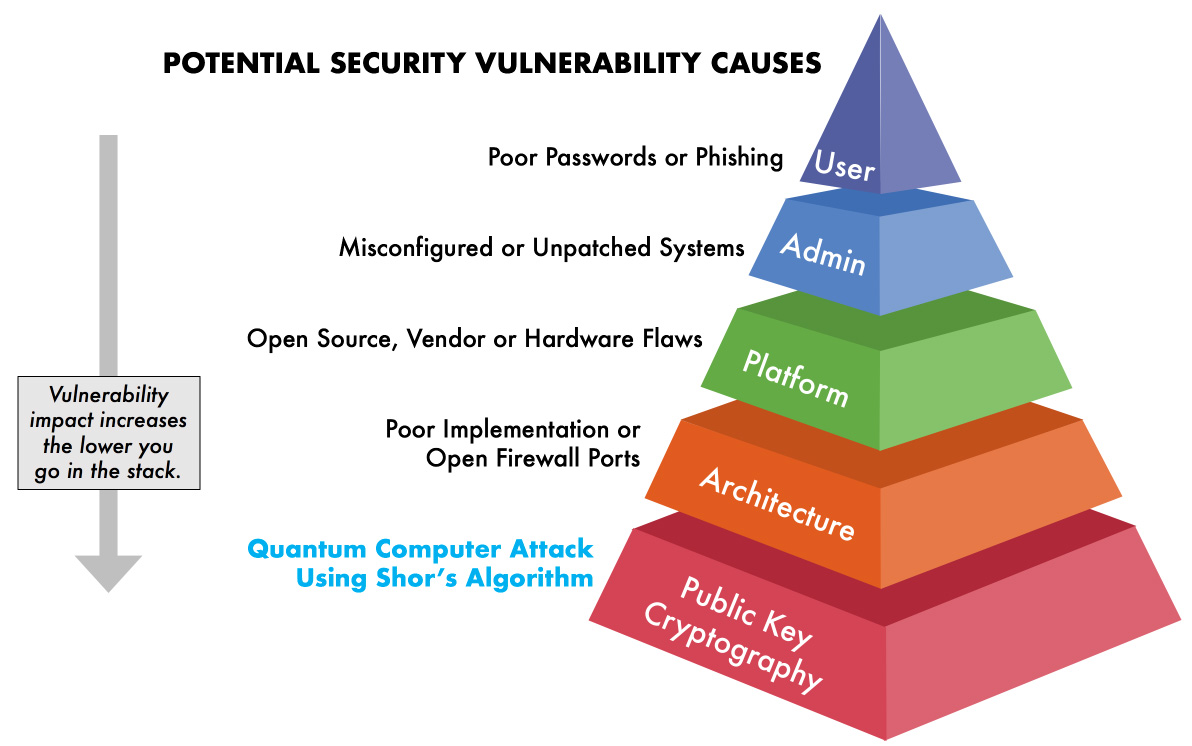The rapid evolution of quantum computing is reshaping technological landscapes, presenting both unparalleled opportunities and significant security challenges for nations. Unlike classical computing, quantum computing leverages the principles of quantum mechanics, such as superposition and entanglement, to perform complex calculations at unprecedented speeds. This has profound implications across various sectors, including cryptography, defense, artificial intelligence, finance, and healthcare.
Recognizing these high stakes, NITI Aayog’s NITI Frontier Tech Hub (NITI-FTH), in collaboration with the Data Security Council of India, recently published a research paper on the strategic implications of quantum computing for national security. The study highlights the urgent need for robust policy frameworks, increased investment, and strategic partnerships to ensure India remains competitive in this rapidly advancing field.
Quantum Computing and Its Strategic Importance
- Quantum computing’s ability to solve complex problems exponentially faster than traditional computers makes it a double-edged sword. While it has the potential to revolutionize industries, it also threatens to break conventional encryption, disrupt cybersecurity, and provide an intelligence advantage to countries leading in quantum technology.
- Unlike classical computers that rely on binary bits (0s and 1s), quantum computers use qubits, which can exist in multiple states at once due to superposition. This allows them to process vast amounts of data simultaneously. Moreover, entanglement—a phenomenon where qubits remain interconnected regardless of distance—enables quantum computers to perform highly complex computations more efficiently.
- Countries that achieve quantum supremacy—the ability to perform tasks beyond the reach of classical computers—will gain significant strategic and military advantages. Governments worldwide are, therefore, investing heavily in quantum research to secure encrypted data, enhance surveillance, optimize logistics, and develop next-generation defense systems.
India’s Response: The National Quantum Mission (NQM)
To ensure India remains at the forefront of this technological revolution, the government launched the National Quantum Mission (NQM) in April 2023, with an allocation of ₹6,003 crore (~$750 million). The mission aims to:
- Develop quantum computers with 50–1000 physical qubits over the next eight years.
- Establish secure satellite-based quantum communication networks to safeguard national security and sensitive data.
- Advance quantum sensing and metrology for high-precision navigation, communication, and defense applications.
- Set up four Thematic Hubs (T-Hubs) at premier research institutions to focus on:
- Quantum Computing
- Quantum Communication
- Quantum Sensing & Metrology
- Quantum Materials & Devices
Despite this ambitious roadmap, India's funding remains significantly lower than that of global competitors such as China ($15 billion), the US ($5 billion), and the European Union ($1.2 billion). This financial disparity underscores the urgent need for increased investment, private-sector participation, and strategic international collaborations.
Challenges to India’s Quantum Ambitions
1. Limited Funding Compared to Global Competitors
India’s ₹6,003 crore ($750 million) budget is one of the lowest among major quantum research nations. Limited funding restricts:
- Large-scale commercialization
- Advanced infrastructure development
- Talent retention in the field of quantum computing
Without substantial investment, India risks falling behind in this critical domain.
2. Weak Domestic Supply Chain
Quantum computing requires specialized hardware components, including:
- Cryogenic cooling systems (to maintain qubit stability)
- High-purity materials for quantum chips
- Precision lasers for quantum communication
Currently, India lacks indigenous production of these components, leading to dependence on foreign suppliers. This not only makes the supply chain vulnerable but also poses national security risks in case of trade restrictions or geopolitical conflicts.
3. Lack of Private-Sector and Industry Participation
Unlike countries like the US and China, where tech giants such as Google, IBM, Microsoft, and Alibaba drive quantum innovation, India’s quantum ecosystem is largely academia-driven.
- Limited venture capital investment in quantum startups
- Minimal industry participation in research collaborations
- Slow commercialization of quantum technology
To bridge this gap, private-sector involvement must be significantly enhanced.
4. Cybersecurity and Encryption Risks
One of the biggest threats posed by quantum computing is its potential to break existing encryption algorithms.
- Sensitive government, military, and financial data stored using classical encryption would become vulnerable.
- Public-key cryptography, which secures online transactions and communications, would be rendered obsolete.
- Cyberattacks by quantum-equipped adversaries could disrupt critical infrastructure such as banking systems, defense networks, and national databases.
India must urgently develop Post-Quantum Cryptography (PQC) to counter these emerging threats.
5. Strategic Vulnerabilities in Intelligence and Defense
Quantum computing will revolutionize Signals Intelligence (SIGINT) and Electronic Warfare (EW) by enabling nations to:
- Decrypt intercepted communications at an unprecedented scale
- Break enemy codes in real time
- Develop unbreakable quantum-secured networks
If India lags in quantum intelligence capabilities, it risks being outpaced by adversaries, jeopardizing national security and defense preparedness.
NITI Aayog’s Recommendations for a Secure Quantum Future
To strengthen India’s quantum ecosystem, the NITI Aayog report outlines the following recommendations:
1. Strengthening National Security Policy
- Establish a Quantum Security Task Force to monitor global advancements and assess potential threats.
- Develop an Early Warning System to identify vulnerabilities in India’s encryption frameworks.
- Implement a Post-Quantum Cryptography Transition Plan to secure national digital assets.
2. Boosting Research and Development (R&D)
- Increase government funding for quantum startups and indigenous hardware development.
- Encourage greater private-sector collaboration to fast-track commercialization.
3. Building a Robust Domestic Supply Chain
- Invest in domestic manufacturing of key quantum components such as quantum processors, cryogenic systems, and high-purity materials.
- Reduce dependency on foreign suppliers through technology transfers and local production incentives.
4. Expanding Global Partnerships
- Forge bilateral collaborations with quantum leaders such as the US, EU, and Japan to access advanced research and technology.
- Advocate for relaxed export controls on quantum components to facilitate technological access.
Conclusion
Quantum computing is a transformative technology that will reshape global security dynamics, defense strategies, and economic structures. While India has taken significant steps through the National Quantum Mission, challenges such as limited funding, weak supply chains, cybersecurity threats, and lack of industry participation remain serious concerns.
To navigate this evolving landscape, India must adopt a multi-pronged approach that includes:
- Enhanced investment in R&D
- Robust cybersecurity frameworks
- Strengthened domestic manufacturing
- Strategic international collaborations
By doing so, India can not only safeguard its national security but also position itself as a global leader in quantum technology, ensuring it is not left behind in the race for technological supremacy.
| Main question: Quantum computing is often described as a double-edged sword. Discuss its transformative potential and the challenges it poses to cybersecurity and encryption. How can India prepare itself for a post-quantum cryptographic era? |









